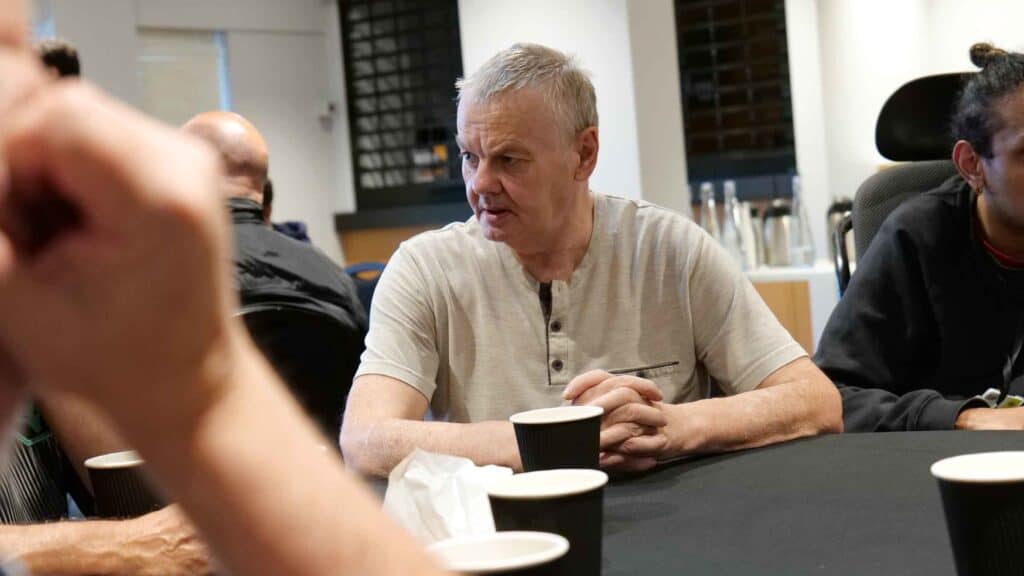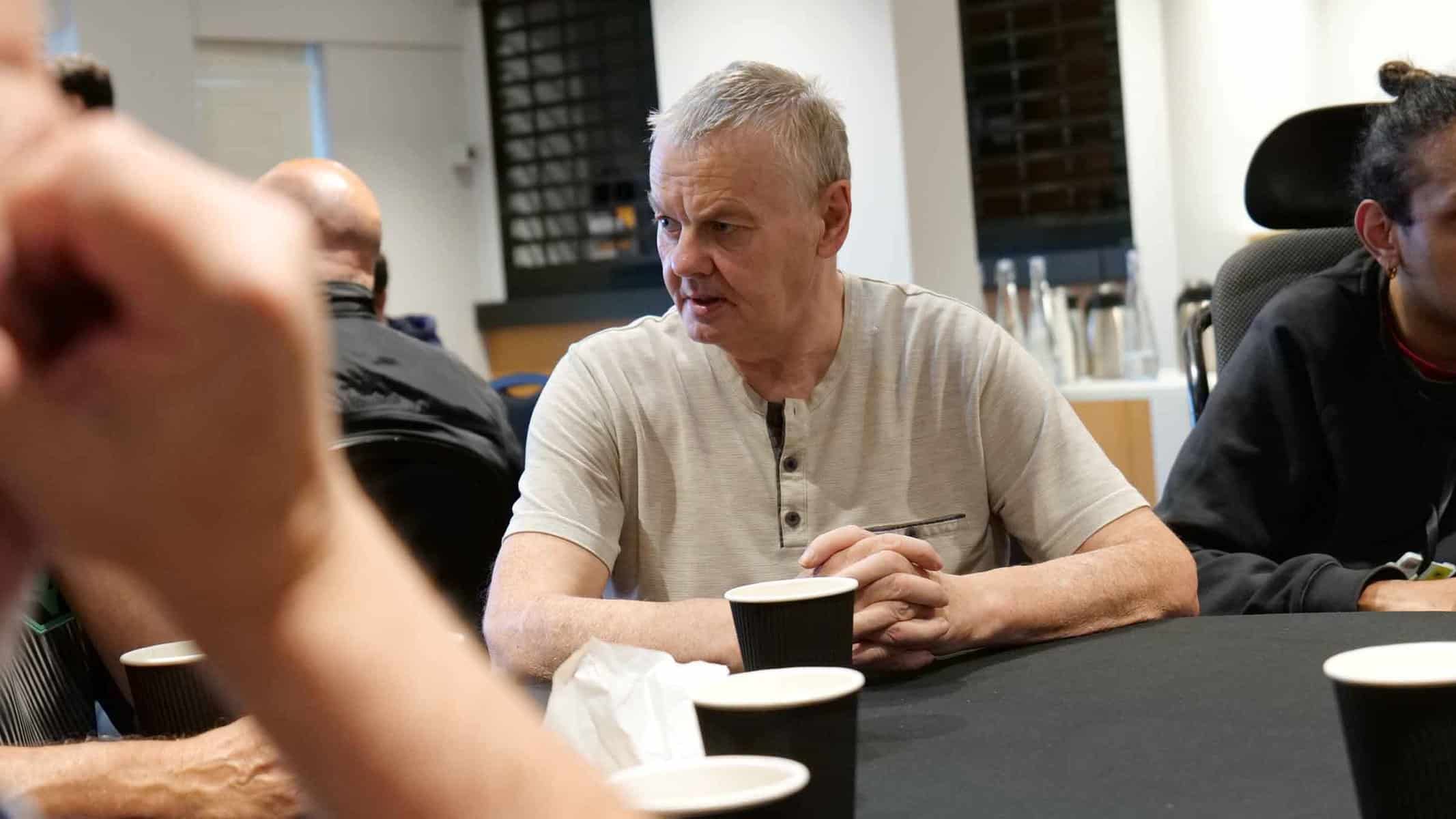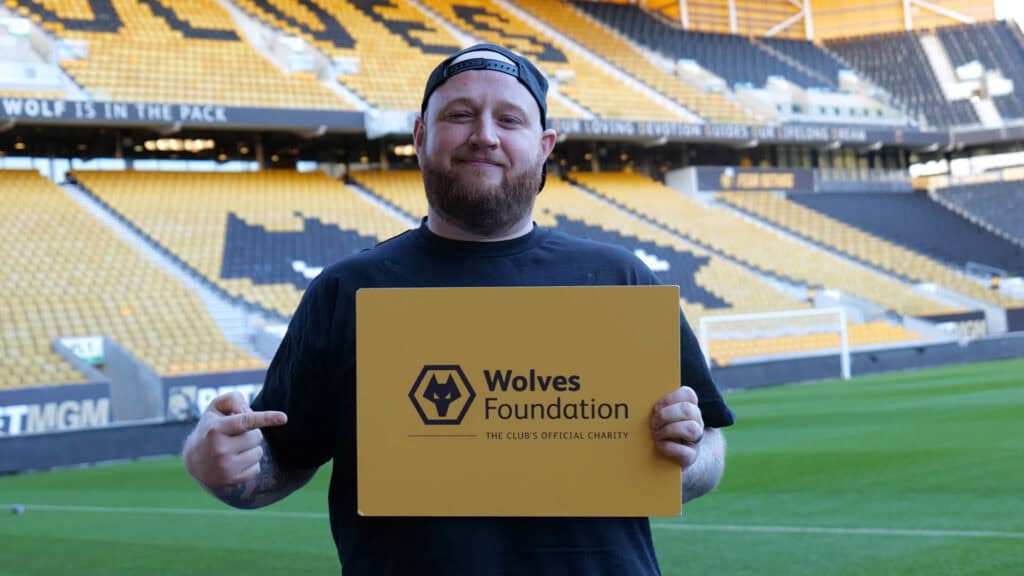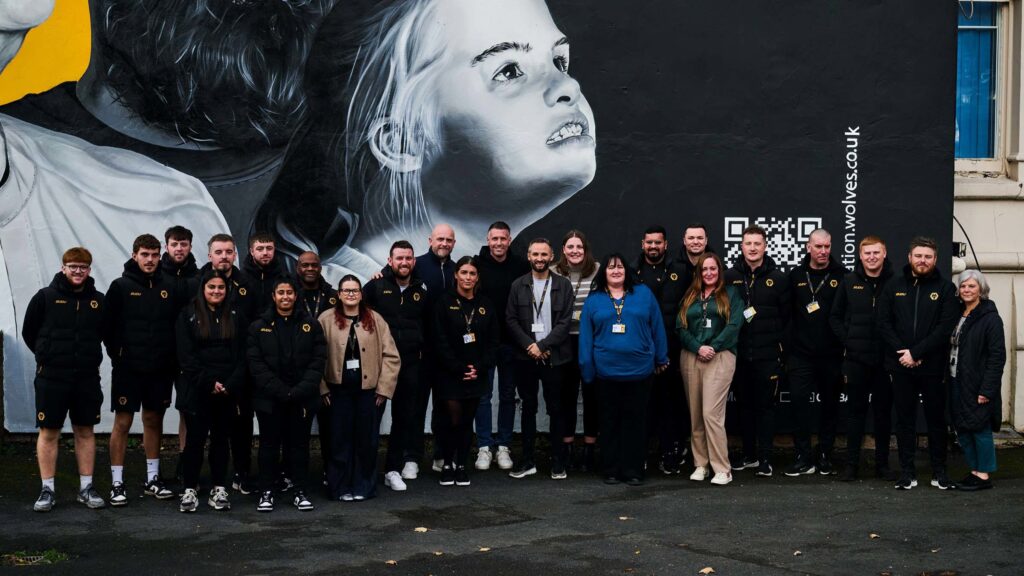
A partnership between Wolves Foundation and the Black Country NHS Foundation Trust is helping more people access support with their mental health and offering them hope for a brighter future.
The Foundation’s Head 4 Health programme, which aims to improve the mental wellbeing of adults through informal workshops and physical activity, has gone from strength to strength since being launched six years ago and has helped hundreds of people improve their mental health.
One of several key partners for the Foundation is Penn Hospital, the facility run by the Black Country Healthcare Trust which focuses on adult mental health and inpatient care.
Wolves Foundation Health Officer Steve Maiden used to work at Penn Hospital, and one of his colleagues was Andrew Timms, who is still based there as the outreach case worker for the High Intensity Use service in Wolverhampton.
On World Suicide Prevention Day, the Foundation and the Trust are highlighting the stories of two male participants who have benefitted from being referred to Head 4 Health of particular significance as figures from NHS England reveal that suicide is the leading cause of death for men under 50.
“Our team – which is myself and clinical lead Melanie Lamb – supports people who attend emergency services or ambulances in high volume. These individuals are some of the most vulnerable people in our community,” says Andrew.
“We know people attend the Emergency Department for a reason, but often it’s not the reason they present with, so we aim to support them with whatever it may be, whether it be mental health, physical health, or social or financial issues.
“We are alerted to individuals that may benefit from our support following attendance at ED and we contact candidates to see if they are willing to work with HIUS and try to address concerns that may not have been highlighted by other services they are involved with.
“We work with them and build a therapeutic relationship. We look at addressing their unmet needs and building their confidence to give them a better quality of life, and Head 4 Health can play a part in that.
“Sometimes people might feel a bit uncomfortable about going along in the first place but, if they do, HIUS will support and attend the group with them. They always seem to enjoy it and get the benefit from it.
“I think we have referred about 13 or 14 clients to Head 4 Health and all that have attended have finished the programme.
“It gives them a safe space where they know they are not going to get judged, this is one of the biggest keys on their route to recovery.”
For Steve, the link-up with his former workplace is ideal in finding people who can both be helped by Head 4 Health, but also bring their own experiences to the group to help others.
“Acceptance, realising that there is something wrong, is one of the hardest parts of mental health and nine out of ten participants still have that stigma when they first come to us,” he explains.
“They can often feel very anxious about coming to the sessions on their own – it is actually a massive step in their recovery – but Andy makes them feel calm and will attend with them if needed to help them feel comfortable.
“Then usually, after a few weeks, he can see they have the confidence to come along on their own.
“After that it’s maintenance that becomes the next stage – it’s one thing to start recovery but maintaining it is a difficult challenge.
“That is why the groups are so important because when one of the participants opens up, and then another, it creates a domino effect and releases the pressure which has been building up.”
Two of the participants who have accessed Head 4 Health via initially being treated at Penn Hospital are Dave L and Dave J, both of whom have made substantial progress as a result.
“I had been locking myself away from people, I wouldn’t do anything and wasn’t interested in people talking to me,” says Dave L.
“I was sectioned for six months and while in hospital, I was introduced to Steve from the Foundation, who is involved with Head 4 Health.
“I went along and it was a bit strange for the first session settling in, but then after the second one I couldn’t wait to go back.
“I loved it, just getting the chance to get a lot of things off my mind.
“It might sometimes feel difficult to shake something off but there is always hope out there, and the best thing you can do is ask for help.”
For Dave J, he was admitted to Penn Hospital after many years suffering from depression, and was also referred to the Foundation for Head 4 Health.
He too has found so many different benefits from the sessions, not just from the meeting up and sharing information but also some of the trips and excursions that participants are able to enjoy.
“We’ve done badminton, football, we’ve been to Bentley Bridge to go bowling, walk and talks in the park,” he says.
“It’s all good as it gets you out of the house and means I’m not just sat at home staring at four walls all day.
“I always feel good when I’m at the sessions, I can chat to the other lads who have similar problems as me and understand where I am coming from.
“I was in a dark place when I started to come here but I’ve learned so much about how to cope better and they will always put you in touch with lots of other different options to help.”
Steve, meanwhile, has also seen the two Davids make considerable progress during their time with Head 4 Health, particularly thanks to the activities which the group can take part in.
“Both of them grew into the sessions as the weeks went on and, when it came to the physical activities, really excelled,” he says.
“Taking part in physical activity gives the mind a break, and, unknowingly, can stop you thinking about any problems that you are experiencing.
“It can help break the cycle of feeling low or social anxiety and not wanting to do anything but, instead, helps you learn and come out of yourself.
“It is great to see the progression that both Davids have made the confidence which is now oozing out of them.”
Head 4 Health operates with thanks to investment from the Premier League and Professional Footballers Association with additional funding from the City of Wolverhampton Council. For more details email healthadmin@wolves.co.uk
Today is World Suicide Prevention Day, a day of awareness designed to raise awareness that suicide can be prevented. For anyone in need of urgent mental health support, contact the NHS by calling 111 and selecting option two.











